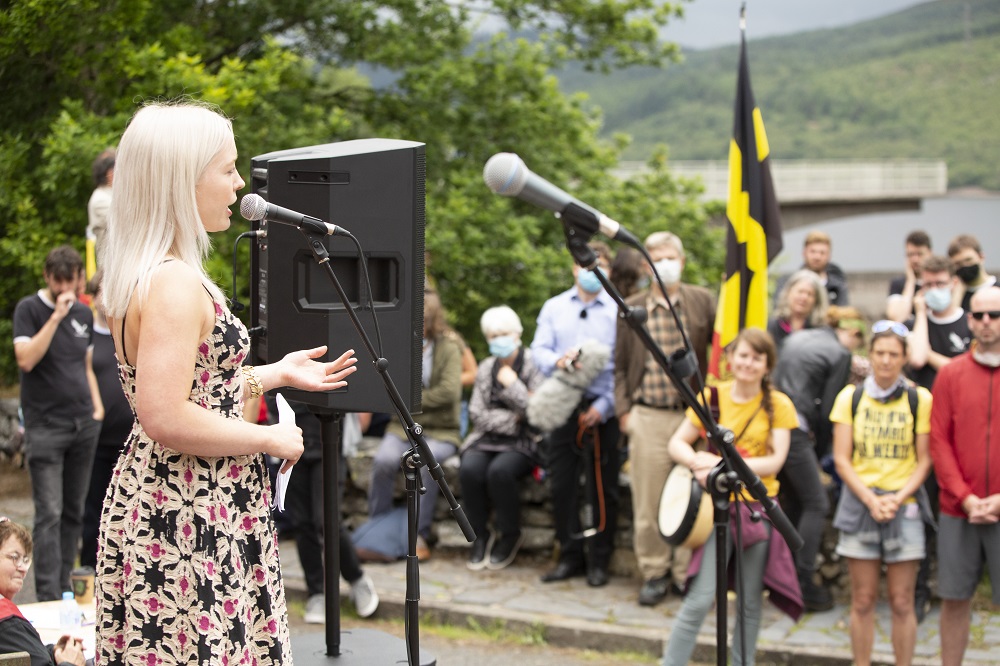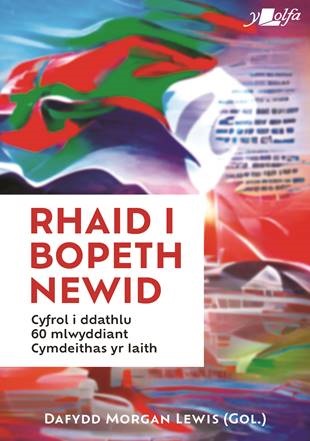Welsh language campaign group set to elect new leader at 60 year conferenece

A Welsh language campaign group is set to elect a new leader at their conference as the incumbent steps down after two years.
Cymdeithas yr Iaith’s Mabli Siriol Jones will stand down and a new Chair will be elected during the meeting, who will then give an address to close the AGM.
The AGM, where a new Senedd (governing body) will be elected, will be held from 11am on Saturday October 8 at Canolfan Merched y Wawr, Aberystwyth.
The AGM will also note 60 years since the campaign group was launched in 1962.
Speaking before the AGM, Tamsin Davies, Vice-chair for communications for Cymdeithas yr Iaith said: “As we celebrate the successes and pay tribute to the campaigners of the last sixty years it is clear that the battle for the Welsh language is by no means over.
“People cannot afford to buy or rent a home in their community and 80% of children are leaving school unable to speak Welsh.
“So the General Meeting will be an opportunity for us to set out our priorities for the coming year. We published our manifesto A Free Wales, A Green Wales, A Welsh Wales earlier this year. It sets out our vision for the long term, but the proposals to the AGM will focus on what we can achieve over the next year.”
‘Different periods’

In marking sixty years Cymdeithas yr Iaith will also use its Annual General Meeting to launch a book discussing the future of the movement.
The book edited by Dafydd Morgan Lewis, who spent over a quarter of a century working for the movement, looks back on past campaigns and assesses the movement’s aims for the future through the eyes of some of its leading members.
As well as photos by Marian Delyth from the past 60 years, there are contributions from Dafydd Iwan, Gareth Miles, Ffred Ffransis, Elin Haf Gruffydd Jones, Wynfford James, Toni Schiavone, Angharad Tomos, Steve Eaves, Joseff Gnagbo, current chair Mabli Siriol Jones, and others.
Dafydd Morgan Lewis said that a range of people who had taken part in the movement’s history were invited to contribute, including those that would continue to guide its future.
“Each one belongs to different periods in Cymdeithas’ history from the 1960s to the present day,” he said. “All have also played an important role in the history of the Cymdeithas, some for periods and others for many years.
“A few moved on to other areas, but with a deep commitment to the future of our language and our communities and to the future of humanity as well.
“Many of them will be here in 2062 when the centenary of Tynged yr Iaith is celebrated. We are within forty years of that. It was a similar time period between Saunders Lewis’ broadcast and the end of the twentieth century.
“Will we be more hopeful then, than Saunders Lewis in 1962? We certainly cannot afford to despair.”
Support our Nation today
For the price of a cup of coffee a month you can help us create an independent, not-for-profit, national news service for the people of Wales, by the people of Wales.





Llongyfarchiadau! I very much hope that the book and indeed celebrations will remember that that many who took part in Cymdeithas activities and demonstrations, especially in the early years, were English speakers like me.